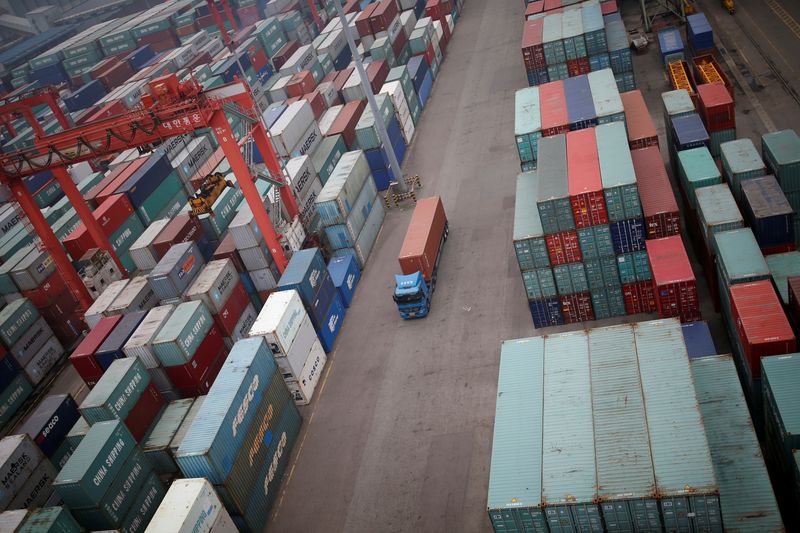Investing.com’s stocks of the week
By Joori Roh
SEOUL (Reuters) -South Korea's trade sector swung back to a surplus in February from a record deficit a month earlier, powered by stronger-than-expected growth in exports, but the recovery faces some risks from Russia's invasion of Ukraine.
Exports in February expanded 20.6% from a year earlier to $53.91 billion, trade ministry data showed on Tuesday, beating a forecast for 18.2% growth in a Reuters' poll and faster than the 15.2% gain in January. It also marked the 16th straight month of expansion.
"Continued rise in oil prices and high semiconductor prices boosted exports growth, adding to the solid exports volume," said Kim Ye-in, an analyst at Korea Investment & Securities.
A breakdown by items showed sales of semiconductors, the nation's top export, jumped 24% year-on-year, while those for petrochemicals, oil and steel products also surged 24.7%, 66.2% and 40.1%, respectively.
By destination, exports to China, South Korea's biggest trading partner, gained 16%, and those to the United States and European Union rose 20.9% and 8.6%, respectively.
Imports, meanwhile, jumped 25.1% in February to $53.07 billion, with those of crude oil, gas and coal totalling $12.5 billion. That brought the trade balance to a $0.84 billion surplus, after a record $4.83 billion deficit in January.
However, the outlook for the trade balance and exports may depend on the Ukraine crisis with a raft of sanctions imposed on Russia for its invasion of its neighbour further disrupting global supply chains.
"Price pressure on energy products will continue for the time being ... with imports value of crude oil seen growing at a solid pace," said Kim Yeon-jin, an analyst at Eugene Investment & Securities.
Western countries decided to block some Russian banks from the SWIFT international payments system, which has become the principal mechanism to finance international trade, with South Korea on Monday joining the sanctions by tightening export controls.
South Korean financial markets are closed on Tuesday due to public holiday.
